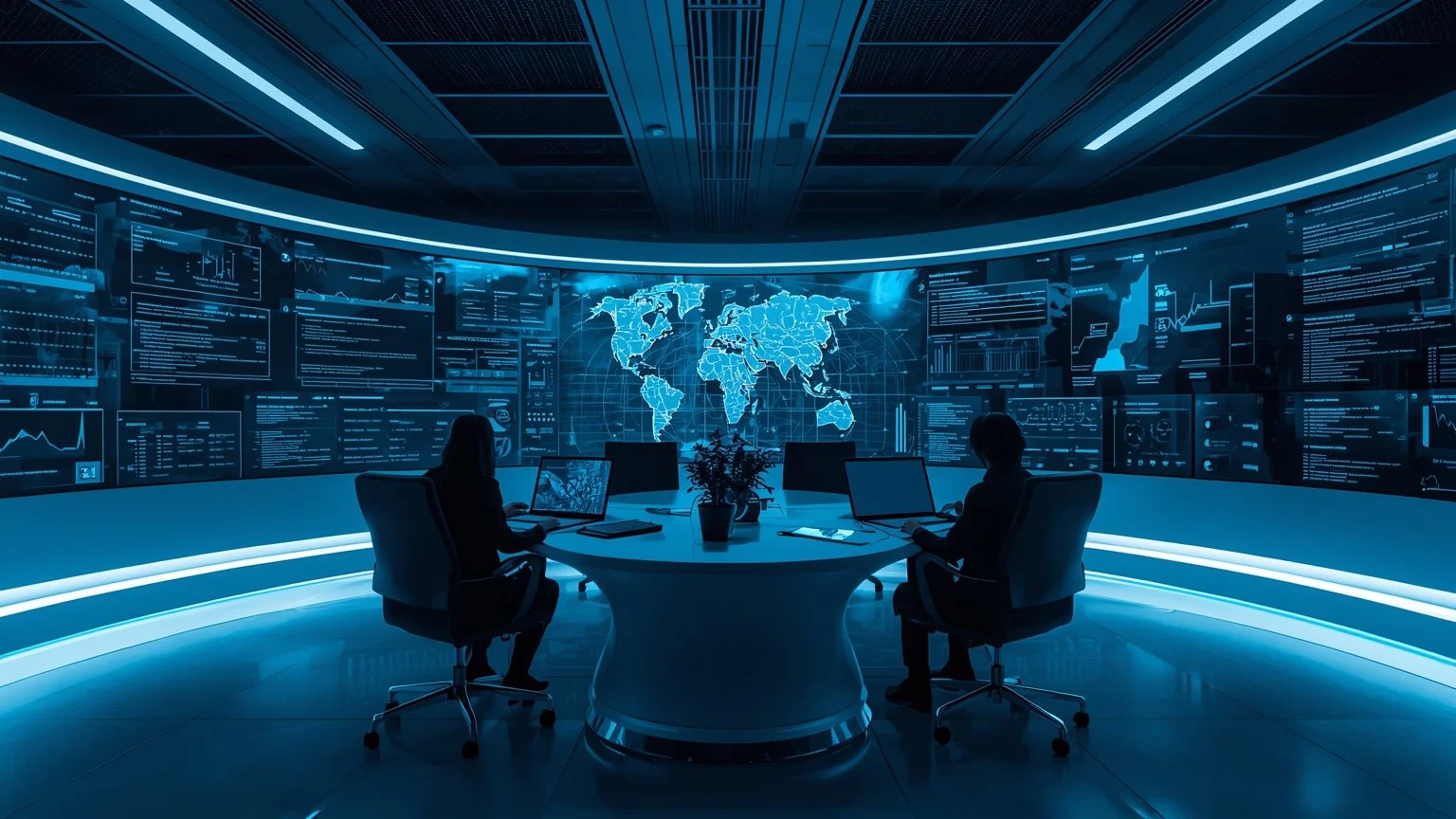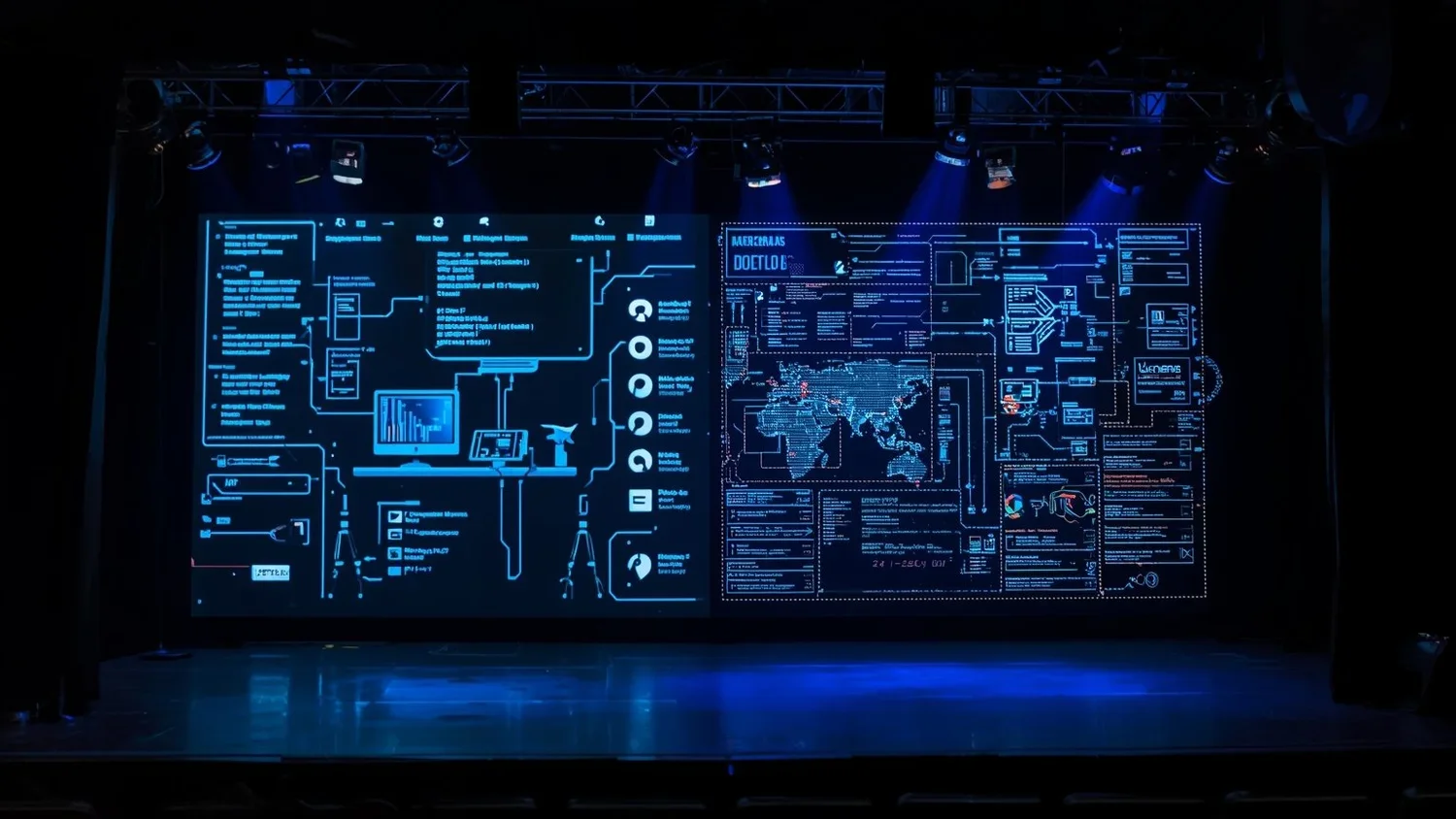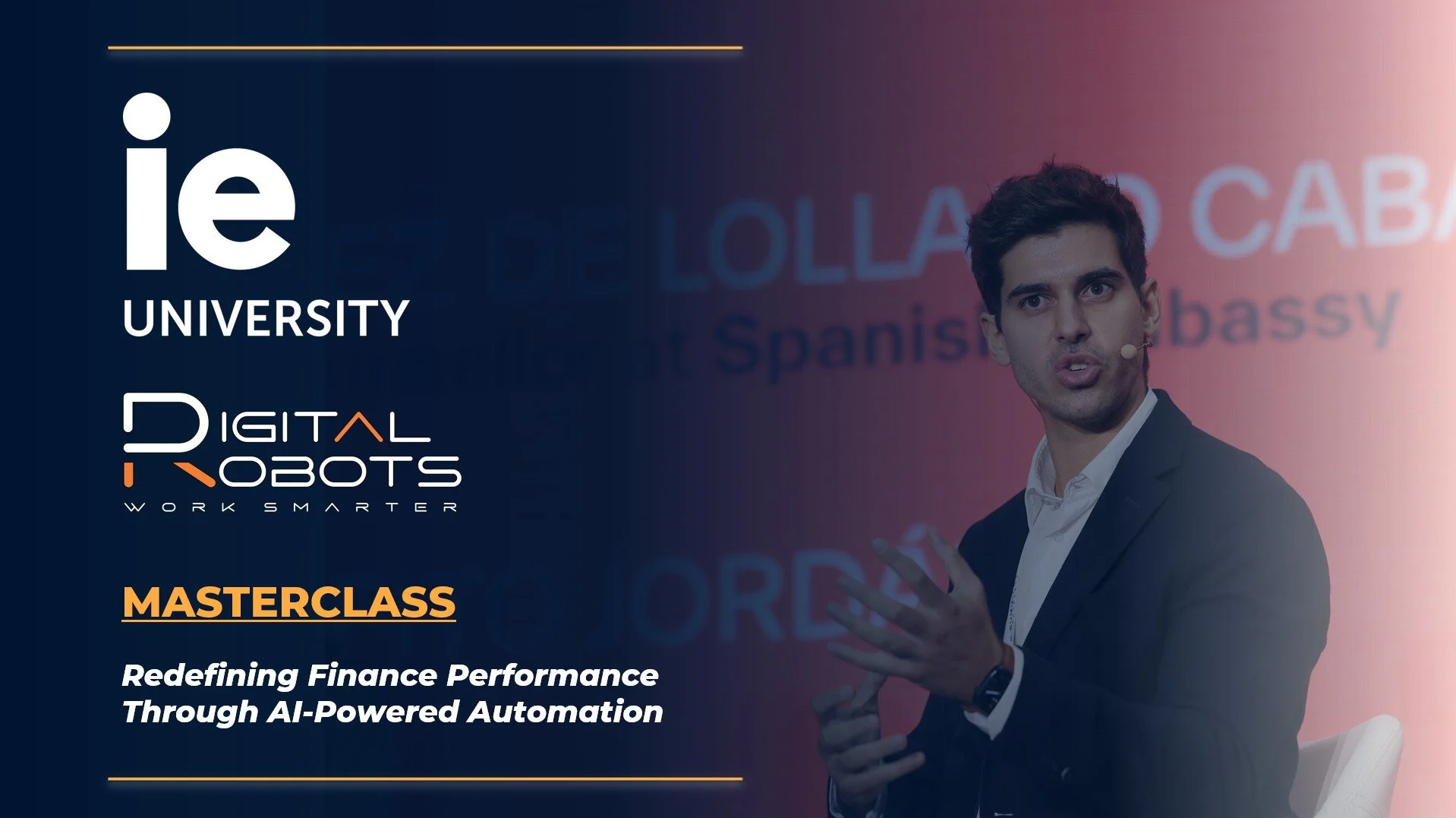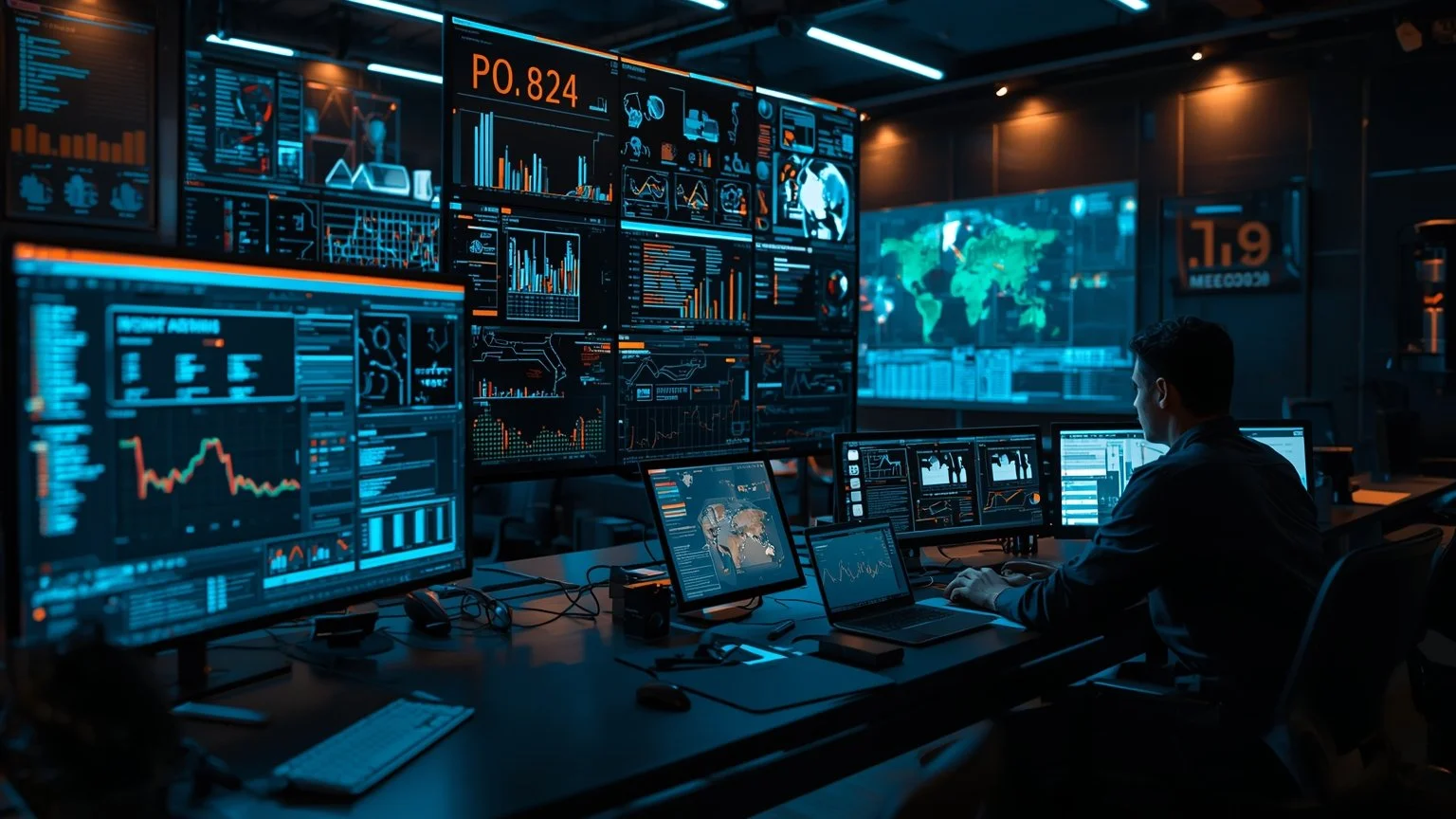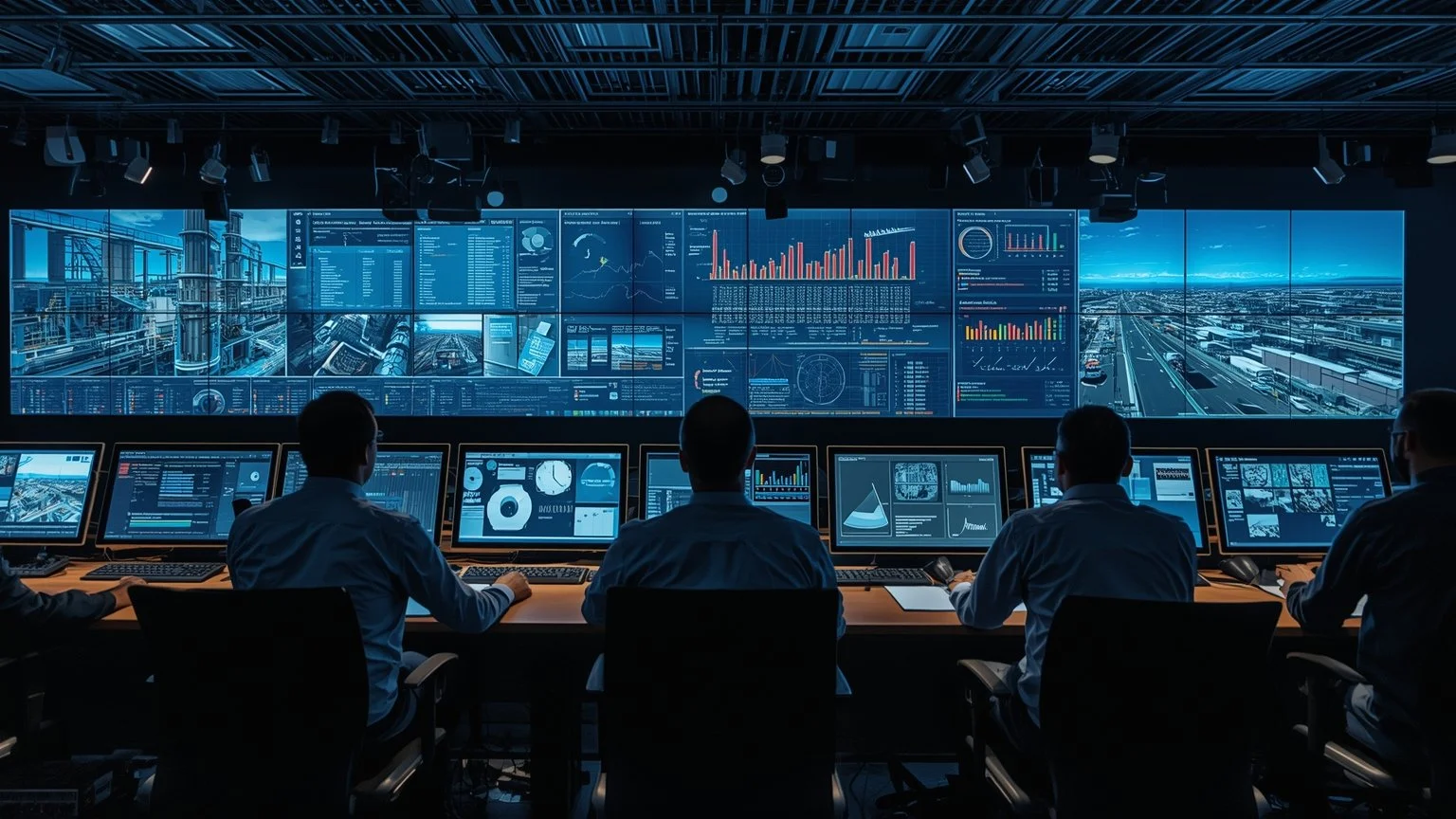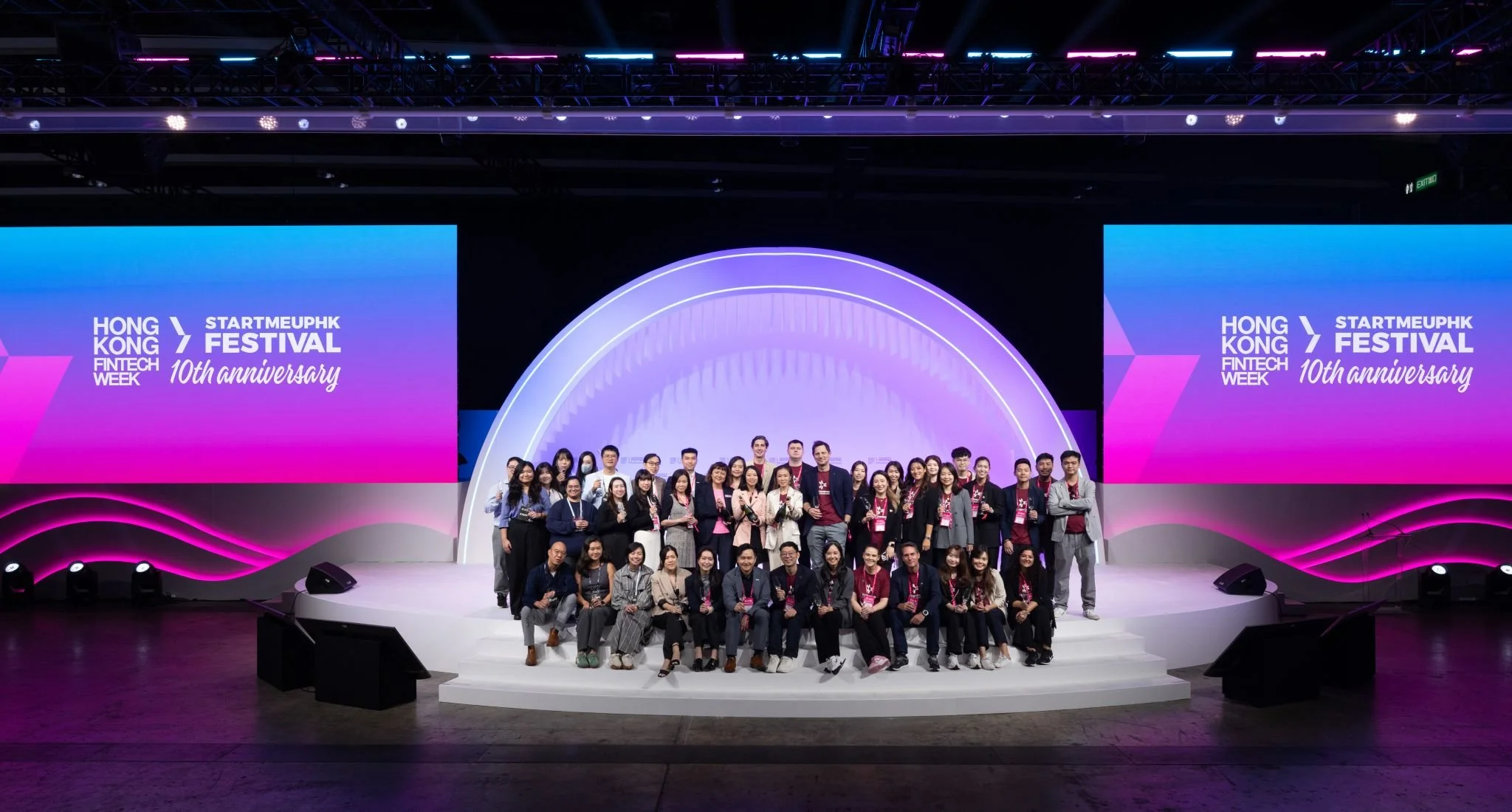DIOTIMES interviews Alejandro Máñez: Digital Robots' vision of hyperautomation
DIOTIMES interviews Alejandro Máñez, founder of Digital Robots, about the evolution of hyperautomation, Agentic Automation, and how AI-driven automation is transforming business operations on a global scale.
RPA vs AI automation: how to choose the right automation for each process
The combination of RPA and AI automation is redefining how companies optimize their operations, differentiating repetitive tasks from intelligent decisions (in some sectors, automation already reduces operating costs by up to 30%). Understanding these differences allows for the design of more efficient and sustainable hybrid solutions.
Attended robots as a key lever in automation: when to use them and real-world applications
Attended robots are establishing themselves as frontline allies, especially in complex processes involving high levels of customer interaction, where they combine speed and precision with human judgment (various automation studies estimate that more than 60% of jobs include tasks that can be partially automated). This hybrid capability allows work to be redesigned without losing control or proximity.
Maturity models in automation programs: the new compass for industry
With automation in full swing, maturity models are becoming established as a guide for scaling up from isolated pilots to autonomous operations. Their adoption is growing, driven by the fact that 98% of manufacturers are exploring automation with AI and only 20% say they are ready on a large scale, highlighting the urgency of a structured roadmap.
Practical AI for SMEs: CEO Alejandro Máñez's vision on the Cluster IA podcast
Practical AI for SMEs is already having a real impact on business. In the AI Cluster's Conversational podcast, Alejandro Máñez, CEO of Digital Robots, shares lessons learned, use cases, and metrics on how to apply artificial intelligence and automation in an accessible, cost-effective, and results-oriented way for SMEs.
RPA vs AI Automation: How to Choose the Right Intelligent Automation
In the RPA vs. AI Automation debate, many companies still confuse repetitive tasks with true intelligence. Recent studies indicate that more than 50% of automation initiatives fail due to poor technology choices, highlighting the importance of understanding these differences in order to scale processes without losing quality or control.
Business automation 2026: the hidden key to productivity
Business automation 2026 is becoming a strategic priority as CFOs increase their technology investment. A recent report indicates that 96% of companies plan to increase their technology spending in the coming years, driven by the promise of greater productivity and resilience (data from a global survey of financial executives). This momentum is redefining how work is designed and managed.
RPA vs AI Automation: Essential Guide to Choosing the Best Automation
The adoption of RPA vs. AI Automationis redefining how businesses operate, from finance to logistics. While RPA automates repetitive tasks, AI provides analysis and decision-making. (A U.S. bank reduced a large document backlog using AI and lowered operating costs by 50%). Understanding both approaches allows for planning scalable automation.
Security and compliance in intelligent automation: the new strategic shield
Security and compliance in intelligent automation have become a priority for risk committees, driven by the widespread adoption of generative AI. (Only 1.6% of firms have fully integrated AI into their compliance processes, even though more than 50% plan to increase automation in GRC.) This gap requires a rethinking of control models, continuous monitoring, and responsible governance.
Mistakes when scaling RPA that slow down intelligent automation
The adoption of RPA is growing strongly across all sectors, but many programs stall when attempting to scale up (a recent study indicates that up to 50% of initial automation projects fail to achieve their objectives). Understanding the most common pitfalls when scaling up with software robots allows you to design a more realistic, sustainable strategy that is aligned with the business.
Intelligent automation in finance: Digital Robots masterclass at IE University
Digital Robots brought intelligent automation in finance to IE University through a practical masterclass on AI, operational efficiency, and the future of financial operations.
Attended robots as a key ally of automation in business
The keyword "attended robots " marks a shift in how automation is understood: it is no longer just about replacing tasks, but about accompanying employees in real time. According to recent data, organizations that combine attended and unattended automation achieve clear improvements in accuracy and response times (with measurable increases in productivity).
Business Automation 2025: The New Era of Intelligent Business Automation
Business automation enters 2025 marked by the emergence of generative AI and autonomous agents, but also by the need for measurable results (according to forecasts, less than 1% of core processes will be orchestrated solely by genAI in 2025). Organizations are redesigning their operations in search of efficiency without losing control or governance.
How to choose an automation partner for large-scale projects without jeopardizing operations
Choosing an automation partner for large-scale projects is now a strategic decision. Technical complexity and talent shortages mean that the right supplier can make the difference between a smooth rollout and months of delays. (In 2024, global spending on industrial automation exceeded $250 billion and will continue to grow strongly.) That's why it's important to apply clear criteria before signing.
Real-life examples of business automation: when scaling drives business forward... or slows it down
Today, business automation has established itself as a key driver of efficiency, but only a fraction of organizations manage to scale it sustainably (some studies estimate that less than 35% of companies manage to roll out their pilot projects across the entire organization). Understanding real-life cases of success and failure allows us to anticipate risks and design more robust strategies.
Digital Robots reinforces its global vision of automation at Hong Kong FinTech Week
Digital Robots participated in Hong Kong FinTech Week 2025, one of Asia's most influential innovation and technology events, reinforcing its international vision of intelligent automation and artificial intelligence.
Business automation 2026: business automation as a key driver of competitiveness
Business automation is establishing itself as the silent driver of the next wave of efficiency. According to a recent report, more than 73% of companies increased their investment in automation in 2025, and nearly 40% managed to reduce costs by at least 25%, thereby driving new, more agile and scalable operating models.
How to measure and maximize ROI in automation so that each project adds real value
Measuring ROI in automation requires going beyond intuitive savings and rigorously quantifying results (many companies achieve returns of 300% to 800% in just a few months thanks to well-focused projects). When a solid database is established, management has more confidence in automation and decides to scale it up with confidence.
RPA vs AI automation: the key to intelligent automation in business
The combination of RPA and AI automation is redefining the way we work across all industries, but there is still confusion about their differences and actual uses. (Recent studies estimate cost reductions of up to 50% when the technology is well aligned with the type of task.) This article presents practical tips and real-life cases to guide investment decisions.
Automation training: the key to enabling internal teams to lead change
Training in automation has become a strategic priority for companies that want to remain competitive. Recent reports indicate that almost nine out of ten organizations will need new technological skills in the next twelve months, while only a minority feel prepared (data from a global study on digital skills in 2025). This gap requires a redesign of how internal teams are trained and how the adoption of new automated tools is supported.







